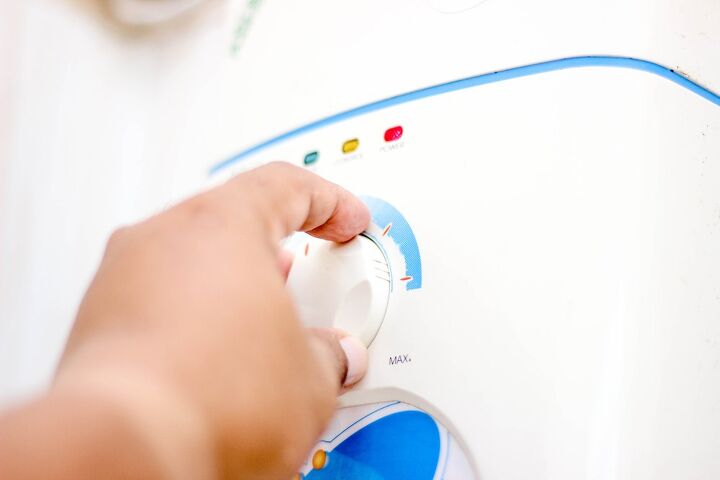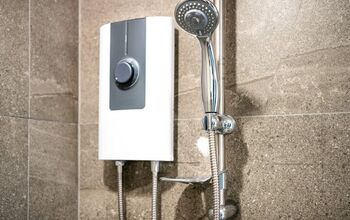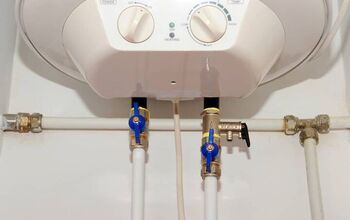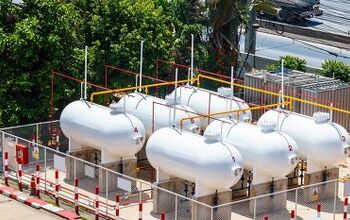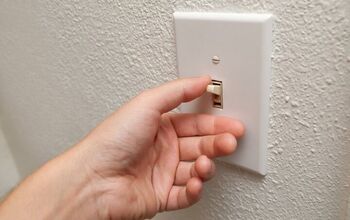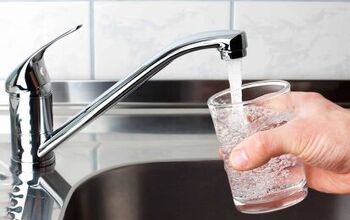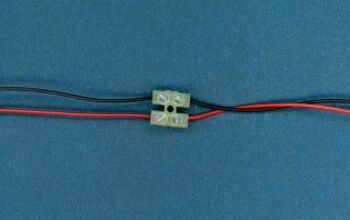What Is A Condensing Tankless Water Heater? (Find Out Now!)

All homes and most businesses can’t do without a water heater, and this is because hot water is needed in homes and businesses for a variety of reasons. There are different kinds of water heaters available in 2021, as the days of 50-gallon-tank heaters being the norm are long over.
Nowadays, one could get a heater that doesn’t even have a tank, and these tankless systems are actually the most preferred models currently. But there are a few kinds of tankless water heaters, with the most popular being the condensing system.
This article will explain what a condensing water heater is, and the benefits and drawbacks of these systems will also be discussed.
Condensing tankless water heaters are systems that can recycle the heat they generate, and this feature makes them more energy-efficient and cost-effective than not only traditional and hybrid heaters but non-condensing tankless water heaters too. Condensing tankless water heaters are also space-saving, but one downside is they can only supply a limited amount of hot water.
Do You Need Tankless Water Heater Installation?
Get free, zero-commitment quotes from pro contractors near you.

What Is a Tankless Water Heater?
A tankless water heater supplies hot water on demand. This is in contrast to a traditional heater, which heats water and then stores it in a tank. When hot water is needed, water flows through the system’s heat exchanger, as this uses combustion to heat the water.
No matter how cold the water is when it comes to the heat exchanger, it can be made hot very quickly. It’ll also pass through stainless steel pipes, and these will retain the water’s heat. Once the water is hot enough, it’ll go to the tap where it’s being called for.
Tankless heaters became popular because they are incredibly efficient and much more affordable when compared to traditional water heaters. Traditional heaters are large and expensive, whereas tankless heaters are cost-effective and space-saving.
There are two main kinds of tankless water heaters, and they are condensing heaters and non-condensing heaters. While condensing heaters will be the main focus of this article, non-condensing heaters will be mentioned a few times for the purpose of comparison.
What Is a Condensing Water Heater?
Condensing tankless water heaters are unique because they recycle the extra heat they produce in the process of heating water. These systems only release the vapors they produce when these vapors can no longer be utilized for the heating process. For this reason, condensing water heaters are referred to as closed systems.
Because of a condensing tankless water heater’s ability to recycle heat, the vapor it releases is much cooler than that which is released from a non-condensing system. This means one does not have to install an elaborate, specialized ventilation system to accommodate their tankless water heater.
In fact, one can use basic PVC pipe, as this will endure the heat of vapor as well as its corrosive properties. Compare this to a non-condensing heater, where an elaborate ventilation system is required in most cases.
Condensing water heaters cool gasses inside themselves, and at the same time they collect condensation. Once this condensation is neutralized, it is safely drained from the system.
The Pros and Cons of Condensing Water Heaters
Condensing water heaters are preferred for a variety of reasons, but that doesn’t mean these systems are without drawbacks. In the sections below, the pros and cons of condensing tankless water heaters will be outlined in detail.
You should go through each one of these sections carefully and consider everything mentioned in totality before you elect to purchase a condensing water heater.
Pro: Condensing Tankless Water Heaters Are Powerful
Condensing tankless water heaters are powered by gas, meaning they can heat water quickly and to considerably hot temperatures. They may be powerful, but they can only produce so much water at once. Therefore, if a system is being called on by more than three taps at once, it’s ability to produce hot water may be strained.
But when compared to another kind of water heater—the hybrid water heater—a tankless system is far superior. A hybrid system utilizes air and electricity to heat water, and often it’s for this reason that these systems pale in comparison when stacked up against condensing tankless systems.
Condensing tankless water heaters are about as efficient as non-condensing systems, but condensing systems possess a slight edge because of their ability to recycle heat. Therefore, when it comes to choosing one or the other, most individuals go with the condensing system.
Pro: Condensing Systems Are Space-Saving
One of the main reasons why condensing tankless water heaters are purchased is because they are space-saving. Traditional water heaters and hybrid water heaters both utilize tanks, which means both can take up a lot of space.
Therefore, one is limited in where they can put a traditional or hybrid system, whereas all that’s needed with a condensing tankless water heater is a wall to mount the system on. This is why you’ll often see homeowners installing tankless systems in basements, utility closets, and garages.
And unlike a hybrid heater, which requires a lot of room to operate, a condensing tankless heater can be stored even in a tight space and still work well.
Pro: Condensing Tankless Systems Can Last For Decades
If properly taken care of, a condensing tankless water heater can last more than 20 years. One must consider, however, that condensing tankless water heaters utilize a lot of components, and at any point one of these can give out—because of wear and tear—and render the system inoperable.
Take, for example, a condensing tankless water heater’s pipes. These must be constructed of high-grade steel that’s resistant to corrosion, for if not they’ll degrade over time and require replacement.
In any case, routine maintenance and proper operation of the system will ensure it lasts a long time.
Con: Limited Hot Water Capacity
This con was already briefly touched on, but here more explanation will be given. A condensing tankless water heater can serve a family of four quite well, but there are instances when so much demand makes a system unable to produce adequately hot water.
So, for example, if someone is taking a hot shower while another person is washing dishes—and all the while the washing machine is running—it’s likely the condensing tankless water heater will not be able to adequately supply hot water to all these spots. And unfortunately, in such an instance, inadequately hot water is distributed everywhere.
Con: Carbon Footprint
Another con is that condensing tankless water heaters emit toxic vapors into the air. While they don’t emit as much as non-condensing systems, one must consider their carbon footprint when operating a condensing system.
Of course, they are much more energy-efficient and cost-effective than traditional systems. But when compare to hybrid heaters, condensing tankless systems come in second.
Do You Need Tankless Water Heater Installation?
Get free, zero-commitment quotes from pro contractors near you.

Related Questions
Condensing tankless water heaters are only becoming more popular as time goes on, and this in part explains why there are so many questions about these systems. A few of the most commonly asked questions are answered below.
Which gets water hotter: condensing tankless water heaters or traditional water heaters?A condensing tankless water heater can get water to over 300°F, and it can do this in just under a minute after being activated. This is on par with what a traditional water heater can do. So in terms of power, one can say they both possess an equal ability to get water hot.
What are hybrid water heaters and how do they measure up to condensing tankless heaters?Hybrid water heaters utilize tanks, but they mainly heat water using electricity. Air is sucked into the system, and then the system uses this air to heat the water. In instances where there is too much demand for hot water, an electric water heater will use electricity to heat the water.
These systems are more eco-friendly and cost-effective than condensing water heaters, but they don’t possess anywhere near the power that condensing tankless systems have.
Related Articles

Matt loves everything DIY. He has been learning and practicing different trades since he was a kid, and he's often the first one called when a friend or family member needs a helping hand at home. Matt loves to work with wood and stone, and landscaping is by far his most favorite pastime.
More by Matthew Mountain



